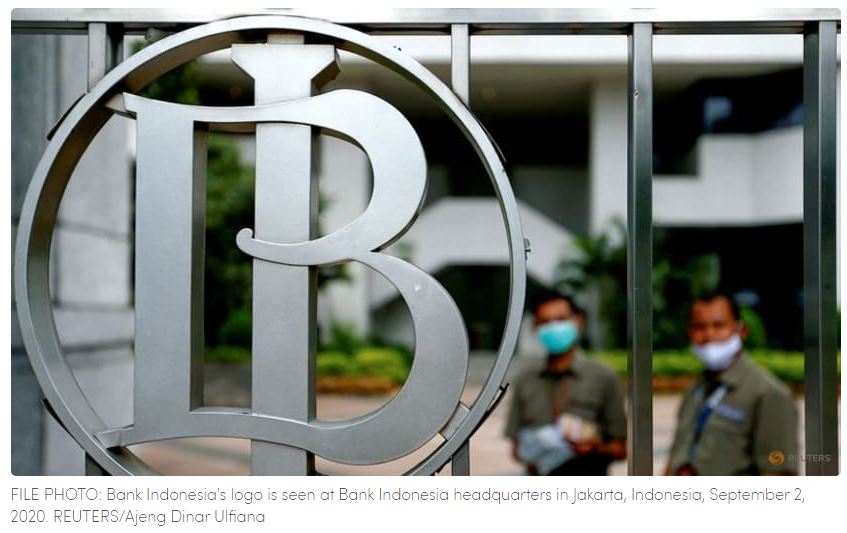Bank Indonesia to hike rates in Q3, to end year at 4.00per cent – Reuters Poll
BENGALURU : Indonesia’s central bank will only raise rates from record lows in the third quarter, several months after a widely-expected U.S. Federal Reserve rate rise this week, a Reuters poll found.
Price rises in Southeast Asia’s largest economy so far have stayed benign. But Russia’s invasion of Ukraine has triggered a spike in global energy and food prices that will make it harder for Bank Indonesia to contain inflation.
Economists in the March 7-14 Reuters poll nevertheless kept their rate predictions largely unchanged from last month’s poll.
With economic growth yet to return to pre-pandemic levels, BI will hold its benchmark seven-day reverse repurchase rate unchanged at a record low of 3.50per cent at its March 17 meeting, all 20 economists polled said.
Over one-third of respondents (seven of 20) expected a hike as soon as the next quarter, but the median forecast predicted a 25 basis point hike to 3.75per cent in July-September.
“Policymakers are expected to monitor geopolitical risks on one hand, and speed, as well as the scale of U.S. Fed policy hikes on the other,” Radhika Rao, senior economist at DBS, said.
“Besides tightening in global financial conditions, we expect a pickup in inflation – geopolitical risks add to this concern – and need for financial sector stability will prod policymakers to raise domestic rates from mid-year onwards.”
Most economists expected tightening ahead and saw the interest rate reaching 4.00per cent by end-year.
Of respondents from a smaller sample, who had forecasts to the end of next year, five out of nine saw rates hitting 4.75per cent or higher.
In a sign the central bank is watching for potential jolts to Indonesian markets from the Fed’s anticipated tightening this week, Governor Perry Warjiyo announced three reserve requirement ratio rises due in March, June and September to contain liquidity.
Most economists said Indonesia would fare better than from previous U.S. tightening as Indonesia’s economy benefits from a global commodity boom, which has kept the rupiah relatively stable and improved the country’s balance of payments.
“Despite the uncertainty caused by the war in Ukraine and the shift to tighter monetary policy in the U.S., the rupiah has held up well. Provided this remains the case, the central bank will be in little hurry to tighten,” Gareth Leather, senior Asia economist at Capital Economics, said.
(Reporting by Vivek Mishra; Polling by Tushar Goenka and Arsh Mogre; Editing by Barbara Lewis)


 Thailand
Thailand




